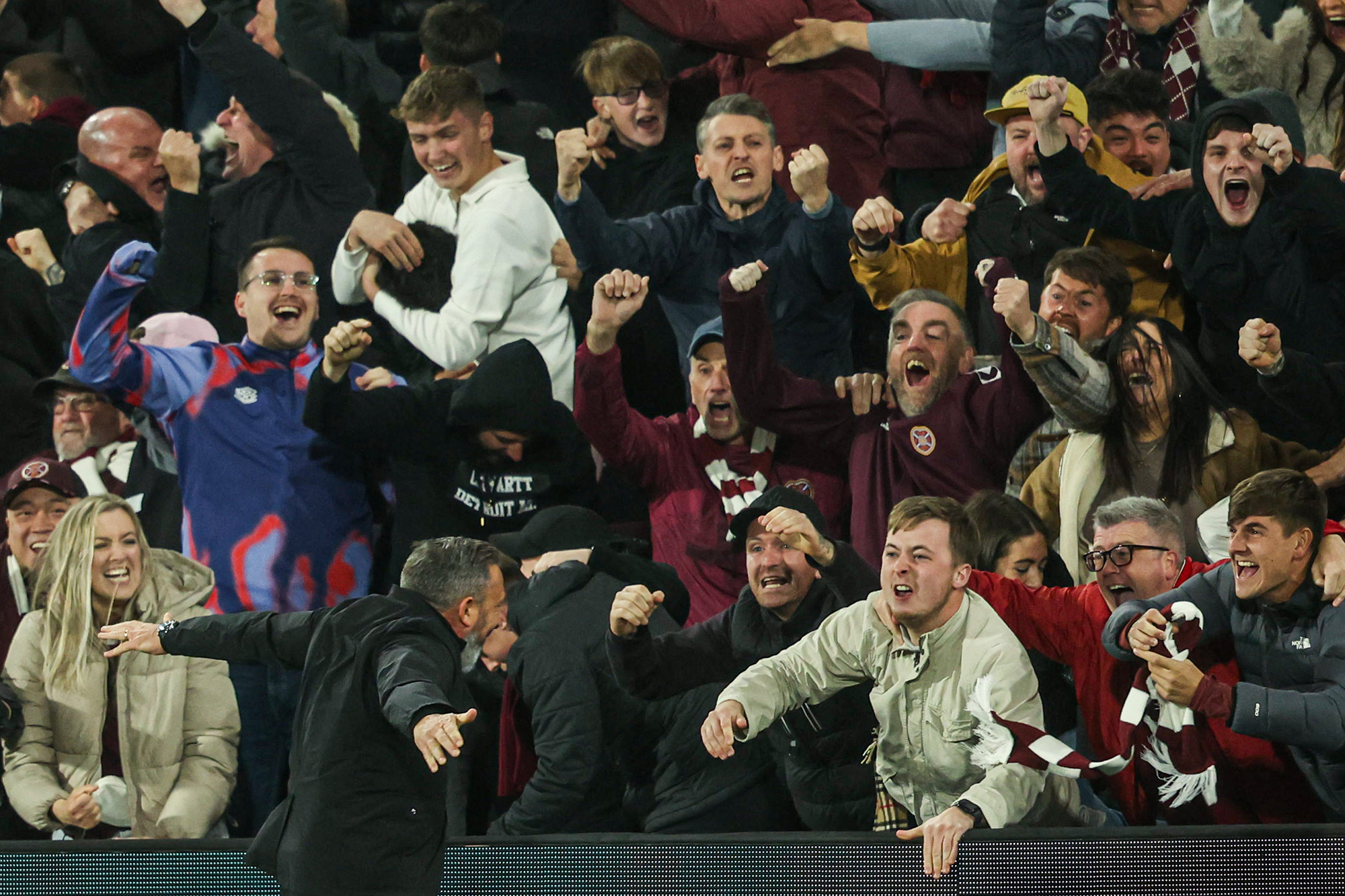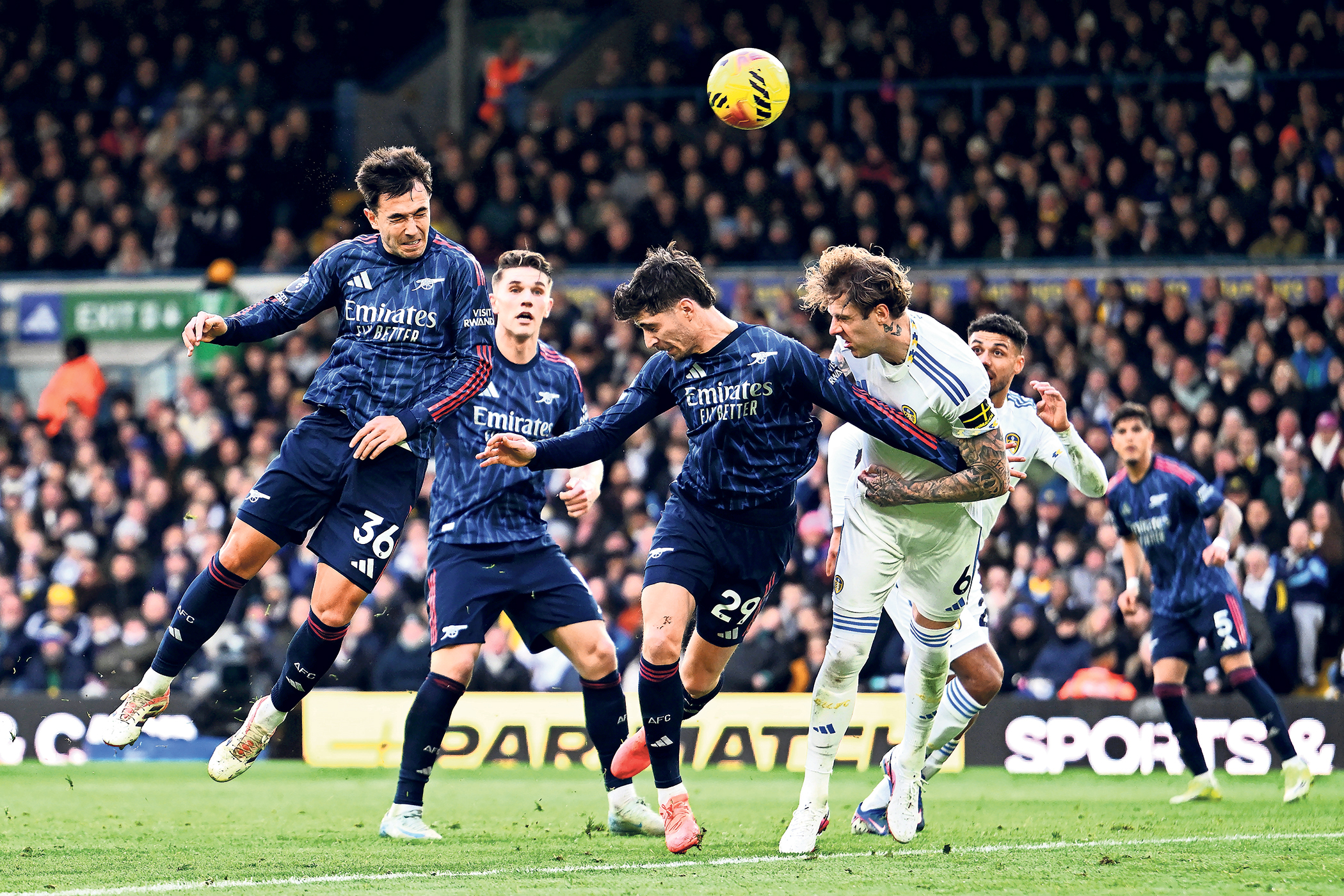As pretty much anyone with any connection to the club will tell you, Hearts have been here before.
They seem to be here reliably, in fact, if not regularly: once every two decades, give or take, as though the club like to inoculate successive generations against optimism by exposing them to the same disappointment, the same pain.
There was 1986, the most piquant of all, when a team inspired by John Robertson and John Colquhoun managed to blow the league title on the final day. There was, most frustratingly, 2005 when they started the season like a train, unbeaten in their first 10 league games, only for a capricious owner to fire the manager, George Burley, for reasons that remain opaque even now.
There are then very few people in Edinburgh who are taking the current state of the Scottish Premiership particularly seriously. Yes, Hearts are five points clear at the top. Yes, that will stretch to eight should Derek McInnes’s side beat Celtic at Tynecastle on Sunday. But nobody believes Hearts are going to become the first team since Aberdeen in 1985 to break Glasgow’s hegemony.
They have been here before. They know how this ends. And it could not, in their experience, be described as happily. “Hearts fans have seen enough to know that when you start to think something might happen, when you start to get excited, what you tend to get is a kick in the teeth,” as Liam Corbett, host of the Hearts podcast This Is My Story, put it.
History would suggest that McInnes was right last weekend to suggest that even floating the possibility of a title challenge is a couple of months too early. He would be more comfortable even entertaining the question “around Christmas and January”, he said, after watching his team win 3-0 at Kilmarnock last weekend.
Over the last 40 years, insurgencies to what The Scotsman has called the “grim duopoly” of Celtic and Rangers have flickered very occasionally: Hearts or Hibernian or, most often, Aberdeen offering a glimpse of promise in the early weeks of the campaign before being unceremoniously dispatched by one or other – sometimes both – of Glasgow’s behemoths.
Last season provided as apposite an example as any. Aberdeen did not lose a league game until November. Minds wandered, fantasies flourished. When Jimmy Thelin’s team did lose, it triggered an almost immediate collapse. They eventually finished sixth. Hope and delusion, in Scottish football, are largely synonyms.
Related articles:
And yet – at the risk of channeling the spirit of Tobias Fünke in Arrested Development – there are reasons to believe that even if it didn’t work for all of those other people, it might work for this iteration of Hearts.
In part, that is to do with the state of the Glaswegian gerontocracy. Rangers have already sacked one manager, Russell Martin, this season. His replacement, Danny Röhl, appears to have been the club’s second or third choice. Discontent at the American consortium that was supposed to herald a new dawn at Ibrox is already festering in the stands.
Newsletters
Choose the newsletters you want to receive
View more
For information about how The Observer protects your data, read our Privacy Policy
More improbably, there is strife across the city, too. Celtic’s complaints do not always elicit much sympathy from their peers. This is, after all, a club who have won all but three of the 12 domestic trophies on offer over the last four seasons. Even in poor years, they have tended to stroll to the title. They went into this season, as they now do every season, with the most money, the biggest wage bill and the deepest squad.
But they are at the moment undeniably forlorn. Tension simmers between the club’s defining modern manager, Brendan Rodgers, and elements of the board. Sections of the fanbase have accused the powers that be of lacking a clear vision of what they want Celtic to become. Failure to make the Champions League group phase – they were eliminated by Kairat Almaty – on the back of a lacklustre transfer window prompted protests in the stands of Celtic Park and on the streets outside. Rodgers himself does not appear to disagree with their frustrations. He has, he said, been “given the keys to a Honda Civic” and “asked to drive it like a Ferrari”.
Hearts, on the other hand, feel for the first time in a long time like a club going somewhere. “There’s an understanding that Hearts are at the beginning of a new era,” said Joel Sked, editor of the Hearts Standard.
Some of that is down to the mere presence of McInnes: his appointment from Kilmarnock was “the biggest and most sensible decision of the summer”, according to Sked. Corbett stressed that having a manager who understands the peculiarities of Scottish football is a significant advantage. “You need someone who knows how to play on a plastic pitch at Kilmarnock,” he said. “You need someone who knows how to play Stephen Robinson’s St Mirren. Derek McInnes does.”
The most seismic change, though, came in the executive suite. In June, Tony Bloom, the Brighton owner, bought a 29% stake in Hearts in June, investing close to £10m and installing James Franks on the club’s board as his representative. Bloom made no attempt whatsoever to hide his ambition, declaring that he believed Hearts could win the league “in the next 10 years” and had a “very good chance of at least being second this season”.
If those remarks seemed a touch overblown for a man who has made his fortune thanks to his cool assessment of raw data, they were deliberately so. “I was bullish,” he told The Observer at the start of the season. “I wanted to excite the staff and fans, excite the club to make sure they’ve really got the ambitions where I think they should have them. I wouldn’t say that if I didn’t strongly believe it.”
That positivity has proved contagious. Successive generations of Hearts fans know to be suspicious of hope, but even they have not been able to resist. “His arrival has united what is a really intense, dialled-in, passionate but sometimes divided fanbase,” said Sked. “The history of Scottish football conditions you to think it is Celtic and Rangers and then everyone else is an afterthought. But Bloom has a track record which you look at and think: ‘This could actually happen.’ No matter who you support, fans want something to believe in. Bloom’s provided that.”
Just as crucially, through a deal between Hearts and Jamestown Analytics, a company he helped to found, Bloom has (indirectly) provided the club with talent.
It is not especially hard to discern the influence of Jamestown in Hearts’ summer transfer business: among the new recruits were signings from Estonia, Iceland and Slovakia. Cláudio Braga, the Portuguese forward who is the club’s leading scorer, came from the Norwegian second division. That proof of concept matters: such is Jamestown’s expertise, there is confidence that equally impactful reinforcements could be sourced, if required, in January.
Whether that is enough, of course, is another matter. Scottish football’s history indicates that it will not last, that Celtic’s wealth and power will win out, that nothing ever changes. The past, though, has never really been Bloom’s concern; increasingly, it does not seem to be Hearts’ either. Why would it? The future looks much more interesting.
Photograph by Craig Foy/SNS Group via Getty Images



